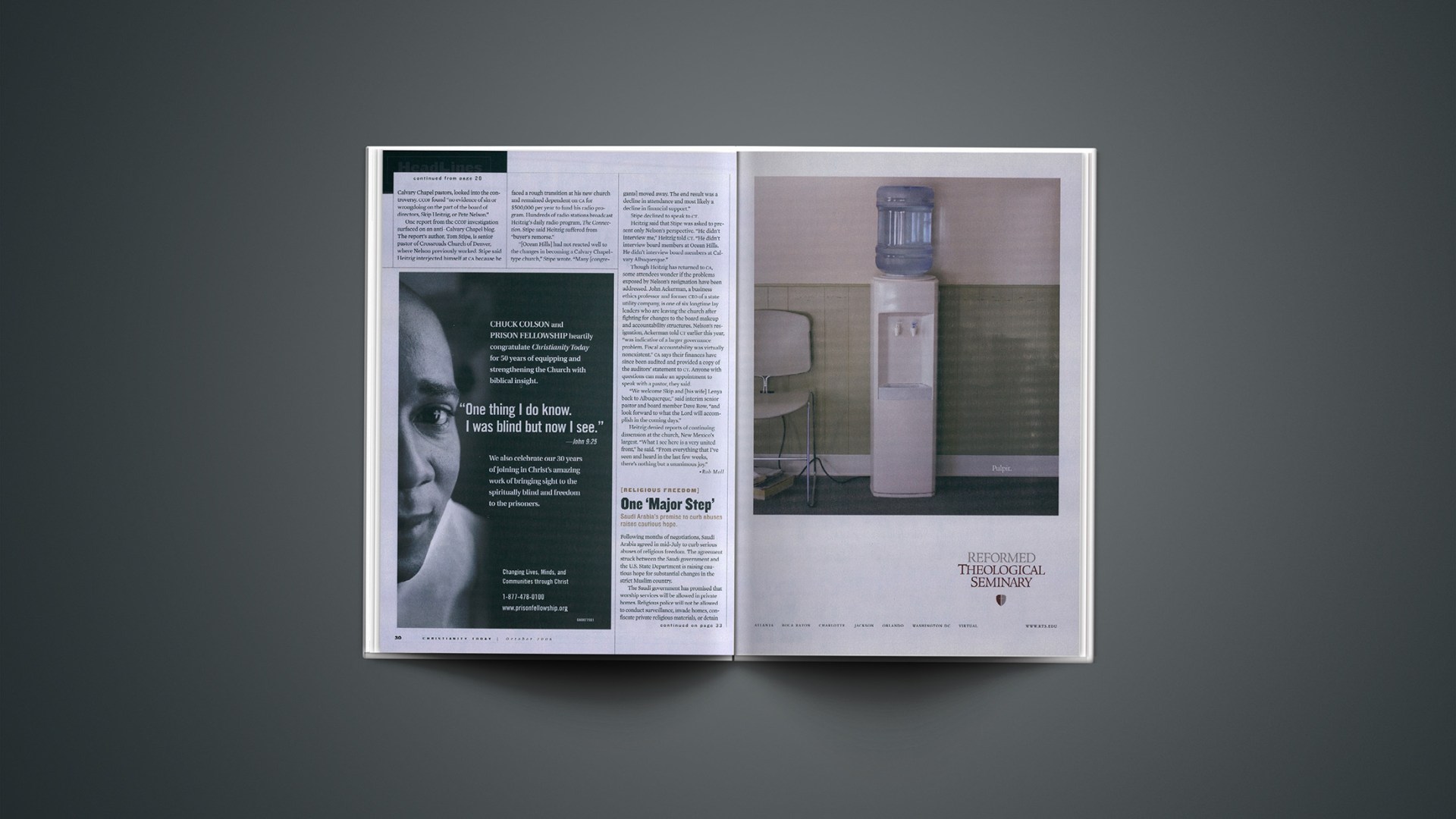Following months of negotiations, Saudi Arabia agreed in mid-July to curb serious abuses of religious freedom. The agreement struck between the Saudi government and the U.S. State Department is raising cautious hope for substantial changes in the strict Muslim country.
The Saudi government has promised that worship services will be allowed in private homes. Religious police will not be allowed to conduct surveillance, invade homes, confiscate private religious materials, or detain or punish suspects. In addition, Saudi leaders pledged to revise school textbooks and remove disparaging references to non-Muslims. The agreement also stipulates that teachers and imams will be retrained to preach tolerance instead of extremism. Finally, the Saudi Human Rights Commission will educate the public about human rights and assist those whose religious rights have been violated.
While proposing major changes for Saudi society, the agreement specifies no accountability system to make sure it is implemented. As a result, some believe the encouraging promises will never get off the page.
Ali Al-Ahmed, a Saudi national and director of the Institute for Gulf Affairs, is wary of his government’s assurances.
“They are trying to buy time,” he said. “When you corner them, they say they will do it. Then they hope you will forget. This is not the first time they said they would reform the textbooks.”
Due to repeated and systemic restrictions on religious freedom, the State Department first labeled Saudi Arabia a “country of particular concern” in 2004. This designation means the country is subject to further U.S. action, including economic sanctions. Negotiations forestalled punitive measures.
Saudi Muslims who do not follow the official Wahhabi interpretation of Islam have suffered confiscation of personal property, torture, or imprisonment by the religious police, according to a 2005 report by the U.S. Commission on International Religious Freedom (USCIRF). Religious expression outside Wahhabism is forbidden, and the government uses criminal charges of blasphemy or apostasy to silence dissidents.
Women must follow a strict dress code and need permission from a male relative before traveling or checking into a hospital. School textbooks, produced by the government, teach children that Christians, Jews, and even Shi’a Muslims are practicing pagan religions and should be shunned.
The agreement marked the first time Saudis have publicly agreed to curb harassment of religious minorities.
“What is new is the [Saudi] government has taken some initiative and come up with some guidelines,” said Michael Cromartie, uscirf vice chair. “If Saudi Arabia does just half of what they said they will do, it will be amazing. … It is a major step of huge proportions.”
Copyright © 2006 Christianity Today. Click for reprint information.
Related Elsewhere:
The U.S. Department of State’s 2006 report on international religious freedom, released September 15, drew criticism from the USCIRF for its characterization of Saudi Arabia.
Christianity Today‘s past coverage of Saudi Arabia includes articles on how to help religious liberty in that country.










